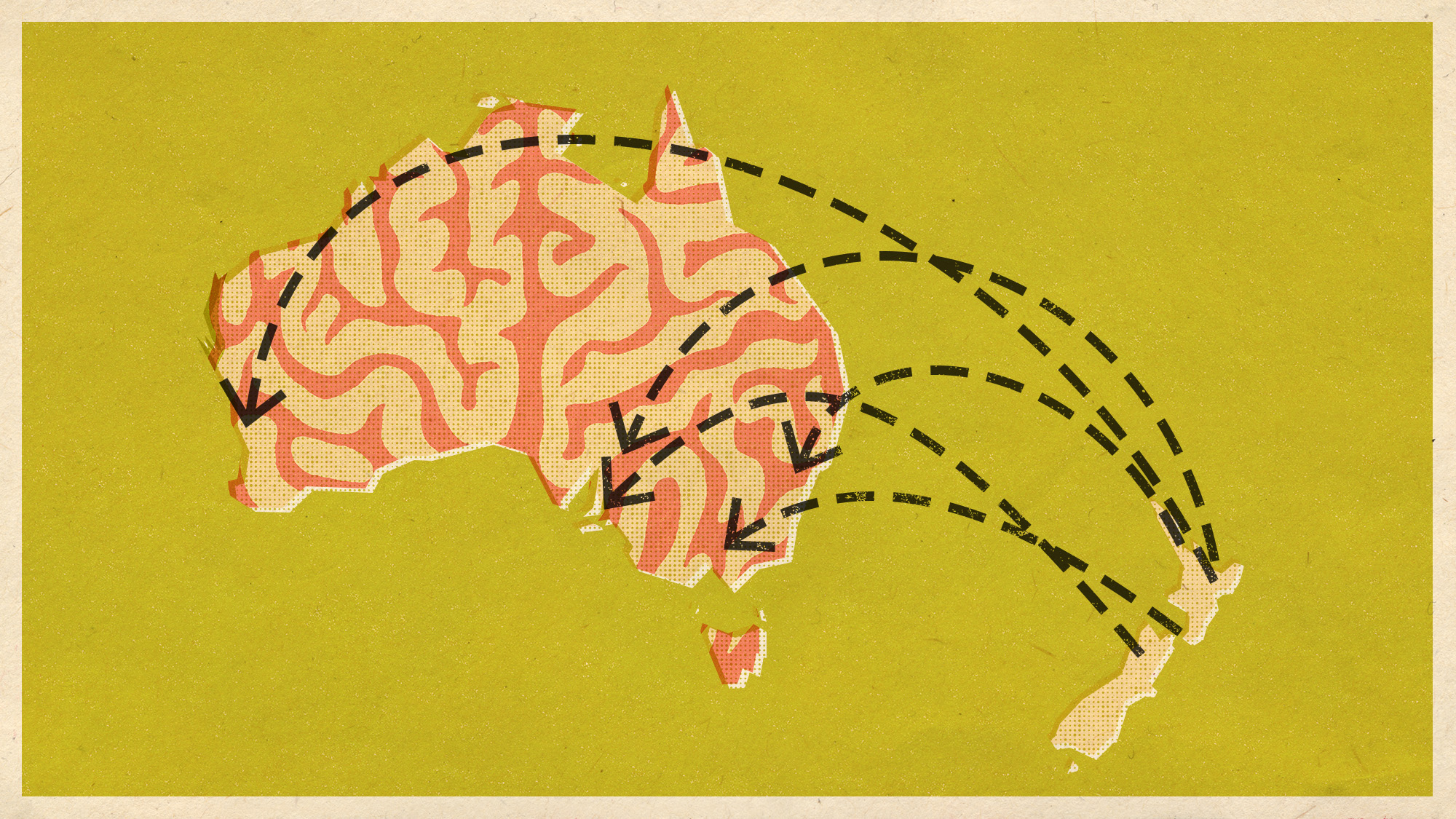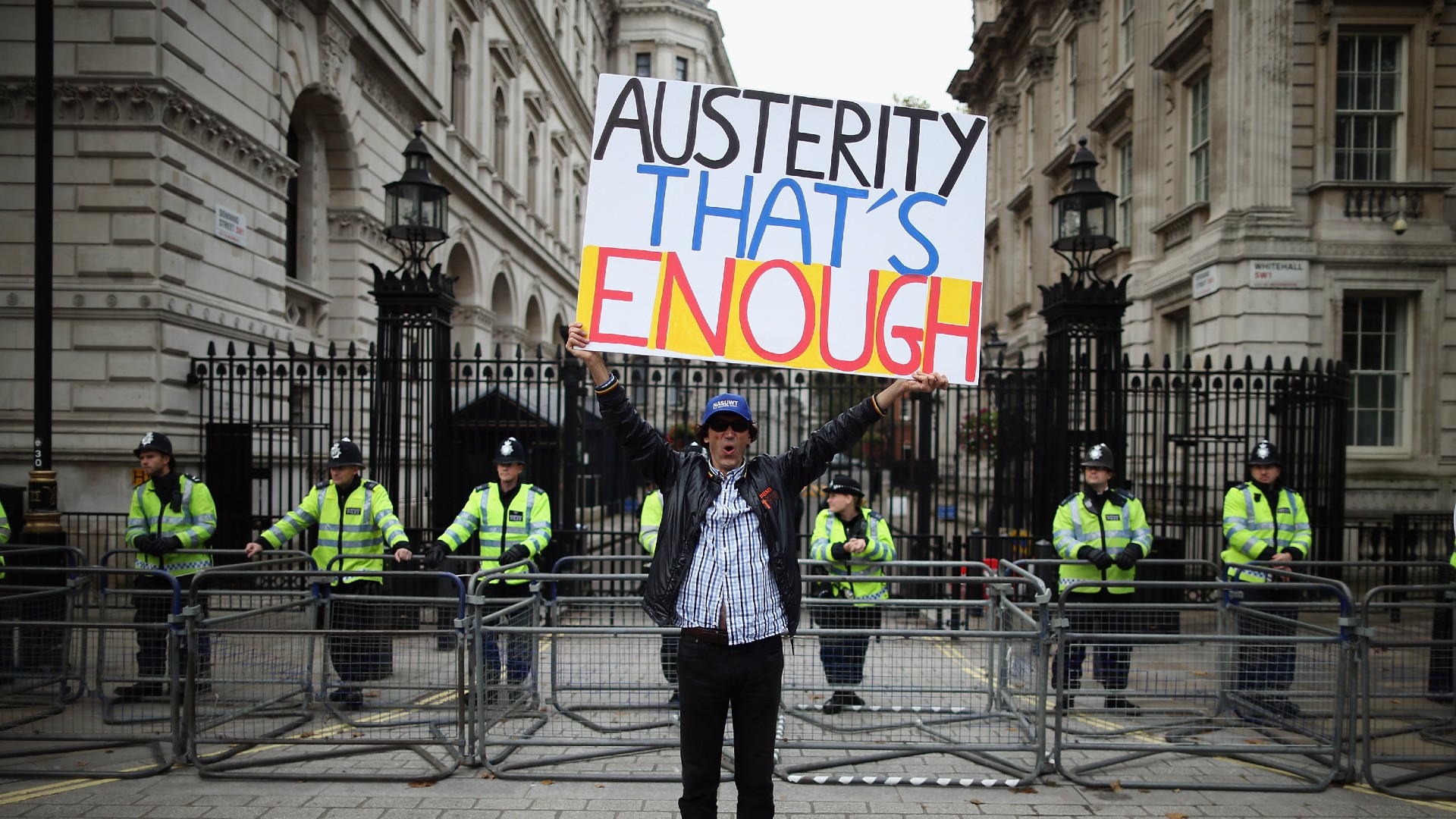Cash timebomb: UK businesses ‘cannot wait weeks’ for financial aid
Poll finds six in ten UK firms have limited cash reserves giving rise to fear of mass insolvencies

A free daily email with the biggest news stories of the day – and the best features from TheWeek.com
You are now subscribed
Your newsletter sign-up was successful
A majority of British businesses are facing a cash shortfall in the coming months, prompting fears the continued coronavirus lockdown could lead to mass insolvencies.
A survey of around 600 British businesses found 62% had no more than three months of cash left to cover running costs, with companies across the country suffering from a sharp and significant fall in domestic and overseas sales as lockdown measures bring many firms close to collapse.
A third of firms surveyed by the British Chamber of Commerce (BCC) were set to furlough at least 75% of their workforces, which would see the government pay 80% of employee salaries to avoid businesses making staff redundant.
The Week
Escape your echo chamber. Get the facts behind the news, plus analysis from multiple perspectives.

Sign up for The Week's Free Newsletters
From our morning news briefing to a weekly Good News Newsletter, get the best of The Week delivered directly to your inbox.
From our morning news briefing to a weekly Good News Newsletter, get the best of The Week delivered directly to your inbox.
Yet “despite the government’s efforts to cushion the economic blow and the Bank of England lowering interest rates to provide cheap financing”, The Guardian reports, “almost one million small businesses across Britain are feared to be at risk of collapsing within the next month as they struggle to secure emergency cash”.
“The coronavirus pandemic has taken a heavy toll on business and economic activity across the UK,” said BCC director general Adam Marshall. “The majority of firms cannot wait weeks or months for help to arrive. There’s no escaping the scale of the challenge UK businesses are facing.”
–––––––––––––––––––––––––––––––For a round-up of the most important business stories and tips for the week’s best shares - try The Week magazine. Start your trial subscription today –––––––––––––––––––––––––––––––
The BBC adds that seperate research, carried out by the Corporate Finance Network, found that nearly a fifth of all small and medium-sized businesses in the UK are unlikely to get the cash they need to survive the next four weeks.
A free daily email with the biggest news stories of the day – and the best features from TheWeek.com
In a bid to help firms survive the lockdown, the Chancellor Rishi Sunak said that businesses would be able to apply directly to their local bank for Coronavirus Business Interruption Loans (CBILs) of up to £5m.
The chancellor pledged that “any good business in financial difficulty who needs access to cash to pay their rent, the salaries of their employees, pay suppliers, or purchase stock, will be able to access a government-backed loan, on attractive terms”.
However, the BBC reports that “thousands of struggling firms can’t get through to their banks by phone or, when they do, are being told by the banks they're not eligible”.
Banks have come under heavy fire amid claims of unfair lending tactics under the scheme, with the Daily Mirror reporting that “some are said to have demanded personal guarantees from business owners while others try to apply high interest rates once the interest rate-free first year is over”.
City A.M. says Sunak is now reportedly set to overhaul the loans scheme after talks with lenders, with Sky News adding the reformed scheme would offer loans as interest-free and charge-free for the first year as long as companies can prove their businesses are viable and they can pay back the loan.
-
 9 products to jazz up your letters and cards
9 products to jazz up your letters and cardsThe Week Recommends Get the write stuff
-
 AI surgical tools might be injuring patients
AI surgical tools might be injuring patientsUnder the Radar More than 1,300 AI-assisted medical devices have FDA approval
-
 ‘Zero trimester’ influencers believe a healthy pregnancy is a choice
‘Zero trimester’ influencers believe a healthy pregnancy is a choiceThe Explainer Is prepping during the preconception period the answer for hopeful couples?
-
 The FTC is pushing back against false 'Made in the USA' claims
The FTC is pushing back against false 'Made in the USA' claimsThe Explainer The agency has dubbed July 2025 'Made in the USA' month
-
 What's Jeff Bezos' net worth?
What's Jeff Bezos' net worth?In Depth The Amazon tycoon and third richest person in the world made his fortune pioneering online retail
-
 'Brain drain' fear as record numbers leave New Zealand
'Brain drain' fear as record numbers leave New ZealandUnder The Radar Neighbouring Australia is luring young workers with prospect of better jobs
-
 Is the UK economy returning to normal?
Is the UK economy returning to normal?Today's Big Question Tories claim UK has 'turned a corner' while Labour accuses government of 'gaslighting' public
-
 Ghost kitchens are pulling a disappearing act
Ghost kitchens are pulling a disappearing actunder the radar The delivery-only trend is failing to live up to the hype built up during the pandemic
-
 The birth of the weekend: how workers won two days off
The birth of the weekend: how workers won two days offThe Explainer Since the 1960s, there has been talk of a four-day-week, and post-pandemic work patterns have strengthened those calls
-
 New austerity: can public services take any more cuts?
New austerity: can public services take any more cuts?Today's Big Question Some government departments already 'in last chance saloon', say unions, as Conservative tax-cutting plans 'hang in the balance'
-
 Would tax cuts benefit the UK economy?
Would tax cuts benefit the UK economy?Today's Big Question More money in people's pockets may help the Tories politically, but could harm efforts to keep inflation falling